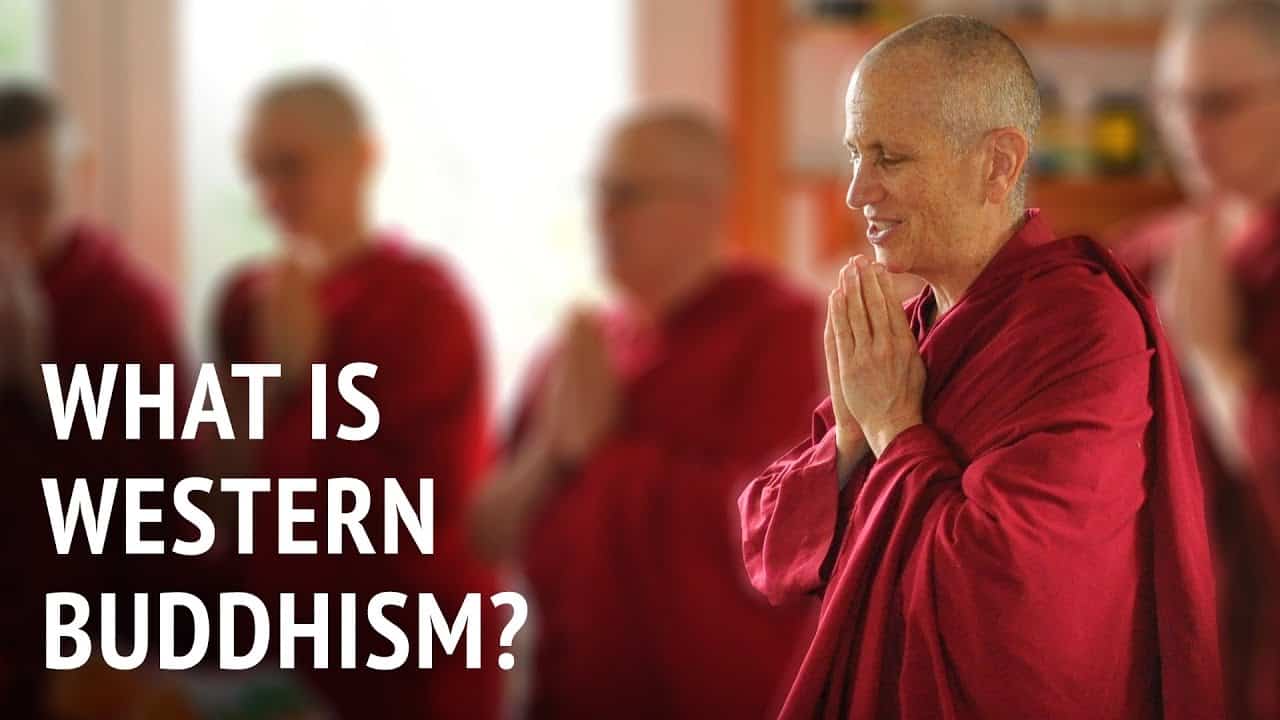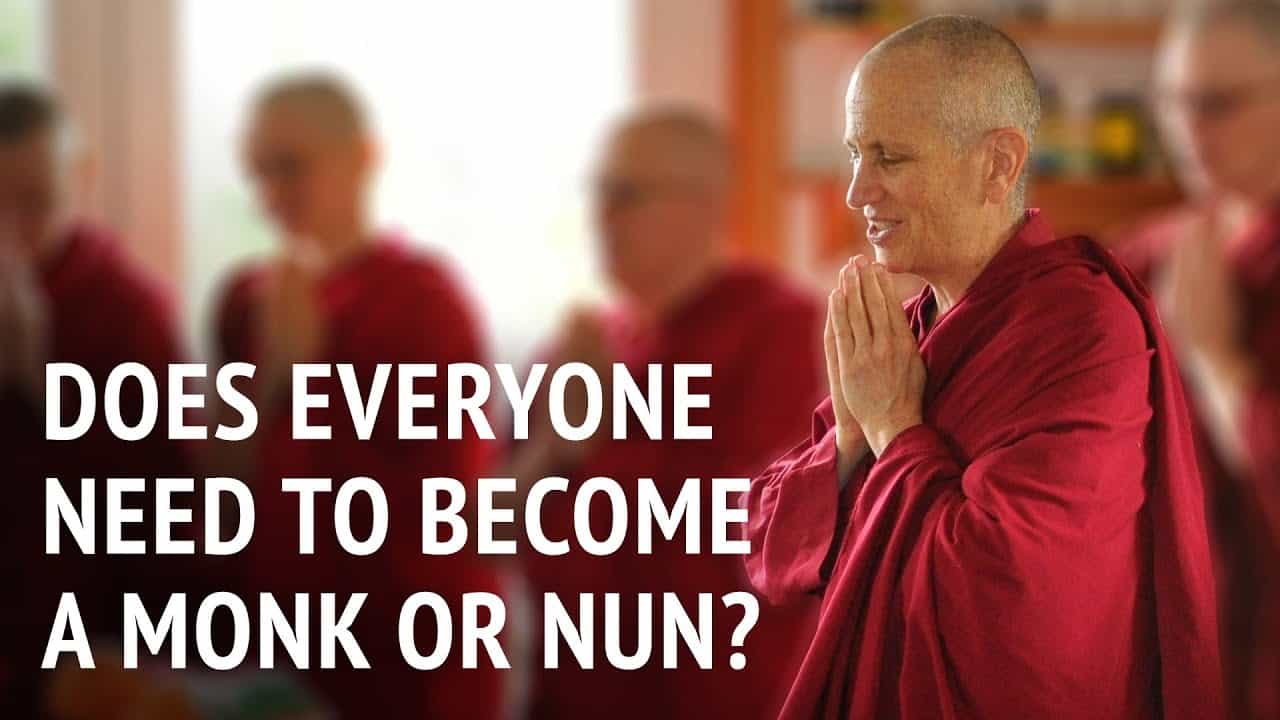Tibetan Buddhism and other Buddhist traditions
In these interviews, recorded by a team from studybuddhism.com, Venerable Thubten Chodron answers questions about her life and what it means to be a Buddhist in the 21st century.
Do I think it’s important for practitioners of Tibetan Buddhism to learn about other Buddhist traditions?
Definitely!
This is one of the purposes of the book that I had the fortune to co-author with His Holiness the Dalai Lama called Buddhism: One Teacher, Many Traditions. His Holiness wanted a book that talks about the Buddhist doctrine.
It isn’t just, “All Buddhists prostrate and all Buddhists make offerings,” it’s not looking at the similarities and learning about each other in terms of the superficial things that you see when you go into a temple. But looking at the doctrine and the practice, there you really begin to see the similarities between the various Buddhist traditions, and really appreciate how they all converge on the four truths, they all converge on the Three Jewels of refuge, they all converge on ethical conduct, concentration and wisdom, they all converge on love, compassion, joy and equanimity. You really see the commonalities, and you see that within different Buddhist traditions, there are different slants on things.
I think that’s very helpful to learn because it stretches our minds, so that we can see things from different perspectives.
And for me, learning about other Buddhist traditions really made me see the Buddha’s tremendous skill as a teacher, that he could teach so many different kinds of people with different interests and dispositions. It really developed my faith in the Buddha as a skilful teacher, seeing how he taught all these teachings that are emphasized in one way or another in the different Buddhist traditions. So I think it’s quite important.
Getting back to the reason for Buddhism: One Teacher, Many Traditions, His Holiness had said that he has more contact with non-Buddhist spiritual leaders than he does with other Buddhists, and he said it really shouldn’t be like that. As Buddhists, we should be able to come together and speak with a common voice.
We’ve seen with the recent thing going on at the border, and the Trump administration separating children from their parents, many of the Christian groups spoke as a group against this. We Buddhists need to be able to come together and do it as a group of Buddhists, not just the people from this center, not just the people from that tradition, but to speak in one united voice.
He said for us to do that, we have to learn about each other’s traditions, because through that knowledge we will abolish all of these incorrect stereotypes that have been passed down from one generation to the next that make us not respect other Buddhist traditions. Those stereotypes are by and large incorrect. If we learn about each other’s traditions, then we can let those kinds of things go.
Venerable Thubten Chodron
Venerable Chodron emphasizes the practical application of Buddha’s teachings in our daily lives and is especially skilled at explaining them in ways easily understood and practiced by Westerners. She is well known for her warm, humorous, and lucid teachings. She was ordained as a Buddhist nun in 1977 by Kyabje Ling Rinpoche in Dharamsala, India, and in 1986 she received bhikshuni (full) ordination in Taiwan. Read her full bio.


